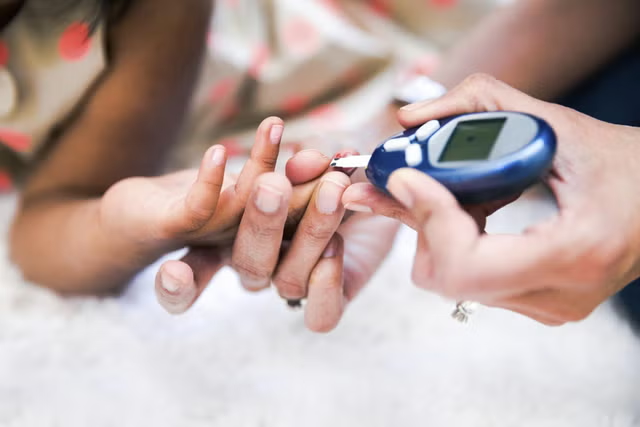Several brands of eggs recalled after a salmonella warning have been given the highest possible risk classification by the U.S. Food and Drug Administration (FDA).
Chicken eggs from the brands Milo's Poultry Farms and Tony's Fresh Market, distributed by Milo's Poultry Farms LLC, were recalled by the FDA last month.
They have now been given a "Class I" risk classification alongside Happy Quackers Farm duck eggs, also distributed by Milo's Poultry Farms.
A Class I risk level is put into place in "a situation in which there is a reasonable probability that the use of or exposure to a violative product will cause serious adverse health consequences or death," according to the FDA.
The strain of salmonella involved in the outbreak is resistant to the antibiotics nalidixic acid and ciprofloxacin, meaning that severe infections may be more difficult to treat.
The eggs were recalled after salmonella was found in the hen egg-laying house and the packing facility at Milo's Poultry Farms in Wisconsin.
"The recall was initiated after the FDA informed the company that environmental samples tested positive for the bacteria," the agency said in the original recall notice.
"FDA also conducted whole genome sequencing and found that the samples were related to an ongoing Salmonella outbreak investigation."
Initially, only Milo's Poultry Farms and Tony's Fresh Market -branded chicken eggs were recalled, but in a classification update the FDA says that Happy Quackers Farm duck eggs are also included in the recall and the risk classification.
These eggs were sold by retail stores and food service distributors across Illinois, Michigan and Wisconsin, with customers advised not to consume them.
"12-count and 18-count cartons of chicken eggs can be identified with the brands of Milo's and Tony's Fresh Market. Duck eggs 12-count carton can be identified with the brand Happy Quackers Farm, UPC 7 99705-75077 7," the FDA explained.
All the recalled eggs have "Best By" dates of October 12, 2024, or sooner. Newsweek has contacted Milo's Poultry Farms for comment.
The same strain of salmonella detected in the facility is involved in an outbreak across the Midwest. 65 people have been infected across nine states, including Illinois, Michigan and Wisconsin, with the majority of infections coming from Illinois and Wisconsin, according to the CDC.
"24 people have been hospitalized and no deaths have been reported," the CDC said.
Salmonella is a bacteria that primarily infects the intestines, but can spread to the bloodstream and other parts of the body, leading to more severe complications, especially in vulnerable individuals.
Symptoms typically appear 6 hours to 6 days after exposure and include diarrhea, fever, abdominal cramps, nausea, vomiting, headaches and muscle pain. Most people recover within 4–7 days without needing treatment, however, dehydration due to diarrhea can be a concern, particularly in children and the elderly.
"Some people—especially children younger than 5 years, adults 65 years and older, and people with weakened immune systems—may experience more severe illnesses that require medical treatment or hospitalization," the CDC explains.
Do you have a tip on a health story that Newsweek should be covering? Do you have a question about food recalls? Let us know via science@newsweek.com.
Disclaimer: The copyright of this article belongs to the original author. Reposting this article is solely for the purpose of information dissemination and does not constitute any investment advice. If there is any infringement, please contact us immediately. We will make corrections or deletions as necessary. Thank you.



